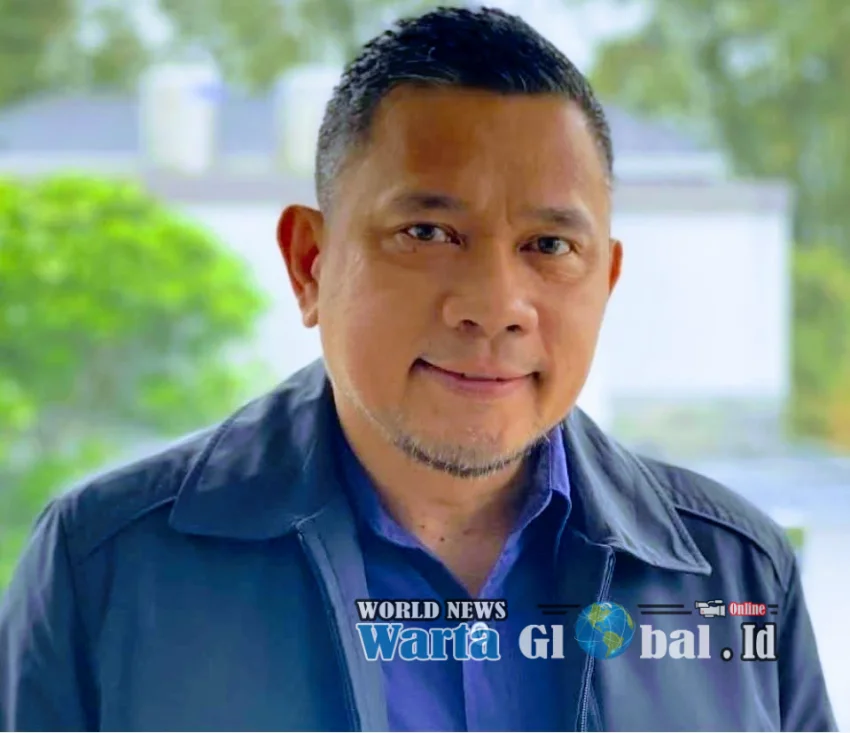
JAKARTA 10/9/2025 WorldWartaGlobal. Id
The Indonesian Press Council (DPI) and the Indonesian Press Union (SPRI) have officially submitted eight important demands to President Prabowo Subianto. These demands are considered urgent steps to guarantee press freedom and stop alleged abuse of authority by the current Press Council.
Hence Mandagi, Chairman of the DPI, a member of the 2019 Indonesian Press Congress and General Chair of SPRI, believes that the current leadership of the Press Council, held by non-journalists, has negatively impacted the national press ecosystem.
"This leadership has the potential to undermine the ethics, independence, and credibility of the press. Just look at how the mainstream media has allowed the exploitation of demonstrations and riots without regard for journalistic codes of ethics," Mandagi said.
According to him, this situation not only damages public opinion but also weakens the function of the press as a pillar of democracy. He emphasized that the demands submitted by the DPI and SPRI represent the voice of the majority of the press community, who have long felt discriminated against.
Eight Demands from the DPI and SPRI
1. Protection of journalists' rights to freely choose their organizations, as mandated by Press Law Number 40 of 1999.
2. Equal opportunities for non-constituent journalists to nominate themselves as members of the Press Council.
3. Involvement of non-constituent press organizations in the nomination and election of Press Council members.
4. Revocation of unilateral regulations issued by the Press Council regarding constituent organizations.
5. Revocation of the Presidential Decree concerning the election results of Press Council members for the 2025–2028 period, as it is deemed to diminish the rights of non-constituent journalists.
6. Enforcement of illegal journalist competency certification practices without official licenses from the National Agency for the Assessment and Application of Statistics (BNSP).
7. Reorganization of competency testing institutions by requesting the BNSP to take over their functions.
8. Government support for restructuring the Press Council, including purging it of elites and former officials suspected of exploiting their positions.
Mandagi emphasized that unilateral regulatory practices make it seem as if journalists are being forced to choose constituent organizations within the Press Council. In fact, Article 7 of the Press Law clearly states that journalists are free to choose their organizations. "The press should be controlled by the press community, not by elite groups or stowaways," he said.
Furthermore, he believes that centralized national advertising spending among large media conglomerates exacerbates inequality. Local media are marginalized, while publication partnerships with the government are enjoyed only by a handful of verified media outlets. "This is what weakens oversight of regional heads and central officials, allowing corruption to proliferate," Mandagi asserted.
The Indonesian Press Association (DPI) and the Indonesian Press and Press Association (SPRI) hope that President Prabowo will immediately take decisive action to restore the health and professionalism of the Indonesian press, free from interference from certain groups. "Save the Indonesian press from elites and former officials with no experience in the press world. Don't let the press be exploited by parties who disagree with the spirit of eradicating the oil and gas mafia, corruptors, and unscrupulous businessmen," Mandagi concluded.
For your information, the Indonesian Press Council is a communication forum for various press organizations under the Joint Secretariat of the Indonesian Press. In 2018, it held the Indonesian Press Grand Conference at TMII and in 2019, followed by the Indonesian Press Congress at the Pondok Gede Hajj Dormitory. Meanwhile, the Indonesian Press Association (SPRI) was founded in 1998 and declared in Jakarta in 2000. It was even involved in drafting the 1999 Press Law. (Team)
Views Post



